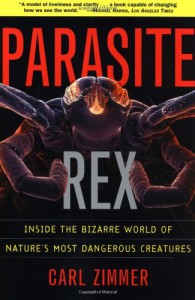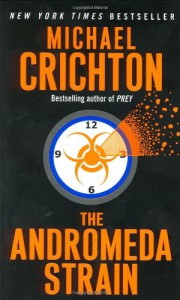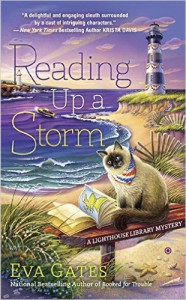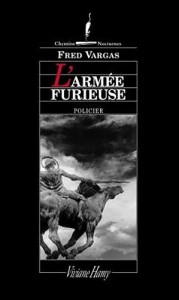A lovely book!

Hendrik Groen gives us insights into this last stretch of life in home for the elderly. At turns funny, sad, whimsical, serious, sweet, he lets us partake in his struggles for dignity and purpose, faced with the realities of a body beset by multiple ailments, slowly lessening capabilities and ever present danger of further decline. Together with some friends he founds a club to escape for a couple of hours every week the constant complaints and reminiscing about old times having been so much better of a majority of the home inhabitants. As he puts it, there are many gentle souls there as well, but they just don't get noticed so much.
And in between their escapades he tells us about the realities of living in an elderly care center and how old age affects the individuals around. How fear is ever close: fear of losing the next friend, fear of the changes triggered by reorganizations of elderly care, fear of losing the last bit of independence, fear of losing the mind to dementia. How the failings of the body reduce one's action radius little by little - but also that there are ways to overcome these hurdles, how important friendship and support is.
I hope that if it ever comes to that, there will be someone like Hendrik around to remind us that life is for living and all possibilities start with the right mindset.
 6
6
A pleasant surprise!

I read John Krakauer's Into Thin Air a couple of years ago and although the actual climbing sequences were gripping, I was really annoyed at the judgemental descriptions specifically of Anatoli Boukreev. I've put off reading this book because I expected this to be part two of a mudslinging contest. I was pleasantly surprised that for most of the book the conflict with Krakauer was not a topic.
The book recounts events based on information available from many other sources and adds Boukreev's comments and insights. The audiobook I listened to was very well done and gave a good impression of the issues cultural differences and a diversity of languages raised for the expeditions. Not until after the expeditions were off the mountains did the conflict actually get room in the book. Though I get the need for justification (not much mudslinging here thankfully), these passages nonetheless were rather tedious.
One of the most interesting aspect of the book was the insight into the logistics and financing of a guided expedition to the top of the world. Most books on climbing focus on the technical difficulties of climbing, the motivation, the mental state. Here we learn of the difficulties of making a living off an athletic skill and the difficult it is to balance this with the pursuit of personal achievements. Evidently a skilled mountaineer does not necessarily have the skills needed to guide successfully or to ensure the complex logistics work as needed. The book highlights the need for all these skill to be included for a commercial expedition to be successful. The margin of error is very small on top of the world and poor communications can quickly turn deadly.
The last part of the book recounts another expedition to Everest with a group of Indonesian climbers Boukreev supported, giving him room to explain his view on the role the expert climber should have. Rather than acting as a guide, Boukreev called his role as lead consultant. He provided his experience in climbing Everest to the group and supported their successful bid for the summit with expertise in preparation for the expedition: how to train and prepare, what equipment to use, what support staff to hire. He very strongly believes that guiding - implying taking on the responsibility for the other climbers - is not an option when climbing under such conditions. Ultimately each climber remains responsible for his own decisions on the mountain.
 5
5
Disgusting! Fascinating! Eye opening!

The first chapter had me entirely grossed out. Did I really want to read a book describing the disgusting things a parasite can do to my body? But then Carl Zimmer took it from the close to home sickness parasites can inflict on a human body to a fascinating journey into the world of parasites - what they are, where they come from, where we find them, how they evolved and adapt to their chosen niche, the fine balance between getting the most out of their host without tipping the scales and killing it outright, the role they play in keeping populations in check and in keeping ecosystems healthy.
 4
4
Restoration of the soul - or why we need wilderness

Philip Connors shares with us his eighth season as a fire lookout on top of a mountain in the Gila National Forrest. It takes a couple of miles hiking uphill from the nearest road to reach his summer workplace. He works ten days in a row and then has four days off to reconnect with civilization for supplies and mail or to take extended hikes into the land around his tower with his dog. Visitors are few and far between.
As he tells us about his time on top of his mountain, about the weather, the changing view, the critters that visit his meadow or he encounters on his hikes, he also tells us about the local history, the ecology of the place and how the USFS' stance on forest fires evolved over time, about the influential people that brought about the chance - and how the land changed with it. This seamless weave of his personal experience, the voice he give to other people who have spent time as fire lookouts and his contemplation of things and events that formed the land make for an impressive read.
It makes me long to spend a season like that.
A window into another world

It's Gjorg's turn to murder a man in the blood feud. There are many rules to be adhered to in the Kanun, the codex that governs life in the mountains of Albania. How to proceed with the murder, how to deal with it's aftermath, the cost of a missed attempt... We learn about this from Gjorg as he considers his act and from Besian Vorpsi, a newly married writer from Tirana visiting the mountains of his homeland to investigate how life is governed by the Kanun, the codex nearly as foreign to him as it is to us.
The title - Broken April - refers to the period of grace accorded the murderer, before he is fair game for retaliation.
Though the topic is really terrible, the rules that govern this life that feels so foreign to me are presented through the eyes of the people that uphold it as a way of life without being judgemental.
 3
3
When it all comes back...

The premise: Scientists have warned of the danger that a returning space probe might bring back a living organism from space. Protocols and facilities have been put place to deal with such an issue - if and when it arises. Now they will be tested.
Having been written half a century ago, the books shows it's age in the pace of things happening. The story is written as a review of how things progressed and where mistakes were made that could prove fatal.
I'm not sure I can give this book justice. As I started reading I realized that I had read it before - and even seen the film... Things kept coming back to me just before they came up in the story... Without this I think the tension would surely be there as the pace picks up. The premise is an interesting one and makes for a good story. I was a bit disappointed at the end though.
 4
4
Iceland at the center of world attention

The duel in question is chess: Fisher vs. Spasky. At the height of the cold war this pitches the US against the USSR an brings Iceland to center stage of world attention for a few weeks. The killing of a young boy in a cinema and the security and paranoia surrounding the duel are at the center of the story. Somehow they seem to be linked.
Though there is a connection to his Erlendur series, this is really a standalone. The backstory of the main investigator illuminates another aspect of history: the impact of tuberculosis before a cure became available. Here again Indridason's strength in conveying a strong sense of place is evident.
Dark, darker, darkest...

Mo Hayder's books are as far away from cozy as can be. Jack Caffery is not a carefree hero and the cases he is confronted with take him into the darkest corners of human nature. In this case the crime is particularly vile as it involves small children. Though the crimes are not described in gory details, the reality of the things cops are confronted when working such cases and the effect it has on them is brought home.
This is not easy to stomach, but the writing is excellent as usual.
 4
4
Cozy!

An idyllic small town with a friendly cast, an inquisitive young librarian, a cute feline, some quirky characters, a dash of romance and the death of a man newly returned into town after many years away make for a light, fun read. I would have appreciated the characters to be a bit more fleshed out, to behave a bit more realistically. In places it all felt a bit overexcited.
I read a free copy in exchange for a honest review.
 4
4
Clash of Cultures and a biiig conspiracy

An American Pathologist giving a visiting lecture series, but with no clue about Chinese culture, and a higher ranking Chinese police officer find themselves investigating a series of murders that are linked together only by flimsy evidence. An opportunity for interesting insights into the cultural differences between China and the US, with a bit of Chinese history thrown in. The plot itself is rather obvious but overall it is an entertaining read, even if the conspiracy to be uncovered seemed a bit too big and the ending was a bit rushed.
I've read the Lewis Trilogy by Peter May and it was one of my favorites last year. They have a quality of emotional engagement that I miss here. I also would have liked the messages to be a bit better embedded in the story rather than being lectures between the two main protagonists.
I read a free copy in exchange for a honest review.
 3
3
A Ghostly Touch

Engl. Title: The Lost Boy
A women and her son seek refuge on Ghost Island off the shore of Fjällbäcka. It is said those who die there never leave. Past and present interweave again as we learn the history of the island and what drove the woman to seek refuge in her childhood home.
It's always nice to revisit old friend - Erika and Patrick and their families, friends and colleagues. The story line is a bit confusing as it brings together a larger number of elements than usual, including some ghostly presences.
 3
3
A Different Approach

After heavy rains a body is found washed up from the river in a field. The young man is obviously the victim of some sexual assault. The police quickly focus on a convicted pedophile living in the nearby town as all evidence seems to point in his direction. But his lawyer and her partner - Helena Flemming and forensic examiner John Eisenmenger - are convinced he's not guilty in this case.
Once again I started right in the middle of a series. No problem. The book is very much focused on what is going on right at the moment. The investigation progresses from two approaches, the pieces of the puzzle being put together very differently by the two teams. At the beginning I had a bit of a difficult time keeping everybody straight, but as the story progressed things became clearer.
The way things unfold feels very authentic and the characters come alive nicely. There's a nice little dose of subtle humour in the writing I liked very much. Looking forward to reading more of these books.
I read a free copy in exchange for a honest review.
 4
4
A Wild Ride in the Country

A young miscreant is setup for a fall by powerful men, a pigeon needs rescuing and the great hunt appears to claim evil men in the Normandie. Commissaire Adamsberg, his son and his team of special characters have a lot on their plate in this latest installment of the series.
I very much enjoy the cast in this series, all very special in their own right. And the very unconventional way in which Adamsberg approaches the cases he is pulled into.
This can easily be read as a standalone. The characters are all vivid without the burden of a lot of back story from previous books, though obviously meeting the band again is an extra enjoyment.
 4
4
Twists and Turns

Mark wakes up in hospital after two weeks and finds his life shattered: his wife is dead, his six month old daughter has vanished and the police keep looking at him as the prime suspect. He wants only one thing: He wants his daughter back. At whatever cost. But the ransom payment goes wrong. 18 months later a second ransom note arrives. A hoax or a second chance?
Harlan Coben takes us on another roller coaster ride, with layers and layers of complexity. And at the end it all makes sense.
 2
2
The End of an Era

The story of the Trotta family is a stand-in for the end of the Habsburg monarchy. As a lieutenant in the army the grandfather saves the emperor's life in the battle of Solferino and is raised from a commoner's situation to a barony. His son would like to enter the army, but is forbidden by his father and does duty as a civil servant. He in turn drives his son into an army career that does not at all fit him. Trapped in circumstances he cannot break out of, the grandson's life spirals downwards and reflects the imminent decay of the empire itself.
The execution achieves it's aim brilliantly. It paints a portrait of a era that has lost vitality and purpose. However for long stretches I felt disconnected from the story. For some parts of the book I switched to an audio version, which embodied the text perfectly with it's slight Austrian tinge and a very measured pace.
The rating reflects a 4 for execution and a 3 for enjoyment.
 3
3
Open your heart and see

A day in the life of a boy lost and his father the chief of police, two cops, two protesters and a WTO negotiator from Sri Lanka. They come together in Seattle for the opening of the WTO congress. For each of them being there in the middle of what is supposed to be peaceful protest but will be end being called riots has roots deep in their own personal history. As the day unfolds, we learn about what brought them here.
However far away in terms of experience and beliefs they start out to be, each of them is a human being with experiences and feelings that make sense. You don't get to take sides, but you get to understand. Loved this book.






 1
1